Best Cities To Live In Mexico In 2026
Mexico remains one of Latin America’s most compelling destinations, especially for North Americans. More than a million expats call it home, and tens...
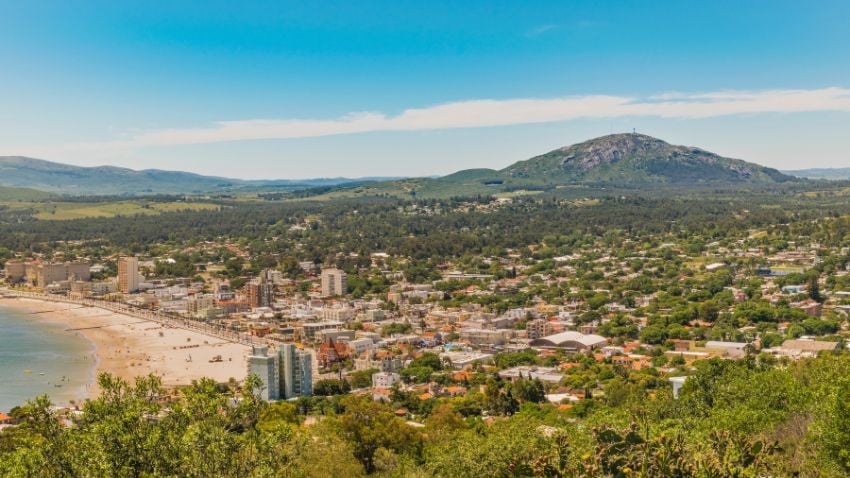
6 min read
As an aspiring or experienced expat, you might spend hours each day looking for the best destination to achieve your goals and live the lifestyle of your dreams. There’s a sea of options, but it’s hard to choose just one place to call home.
The typical expat hotspots like the UAE, Singapore and Spain might have lost their allure, so you prefer a lesser-known destination that still makes the cut. So, where should you go?
Uruguay emerges as a bastion of prosperity and opportunities, offering massive incentives for expats beyond an amazing tax regime that has earned it the nickname “Switzerland of South America”.
Uruguay has in store a lot for expats: excellent infrastructure, organic food, and a variety of cities that cater to anyone’s needs. But first, we’re delving into the basics of Uruguay's residency visas. According to your situation, you’ll prefer one over the others to maximize your chances of success and secure your new life in this South American country.
Prepare to discover how Uruguay has become an attractive destination for those seeking a brand new start filled in a place with low taxes and a lifestyle you can afford without breaking the bank.

The visa for Uruguay retirees is complete, with tax benefits and tax exemption on your pension or income
Your current circumstances will determine the visa you should pick to ensure a smooth relocation. Let’s break them down.
If you’re about to start your golden years, Uruguay's retirement visa offers multiple perks to foreigners. You can get it within a week, and the following eligibility requirements make it highly accessible:
A proven monthly income of $1,500 USD or more (supported by a certificate of income issued by the institution that pays your retirement or pension);
Clean criminal record;
Documentation that demonstrates your ownership or lease of the property where you intend to reside in Uruguay.
Six passport-sized photographs that can be taken on-site in Uruguay;
Certificate of good conduct issued by the police authorities in your country of birth;
Legalized and translated birth and, if applicable, marriage certificates into Spanish;
Medical certificate issued by a licensed Uruguayan doctor;
Once you meet the requirements, you can get the visa in no time and access all these perks:
Zero taxes on foreign-sourced pensions or income thanks to Uruguay’s territorial tax system;
Import of personal vehicle to Uruguay duty-free;
Import of household goods and personal belongings from abroad without paying customs duties, taxes, or related charges;
Access to the Uruguayan Healthcare System;
Potential Dual Citizenship. Married couples can apply after three years of residency, while single foreigners must wait five years.
As you can tell, Uruguay’s visa for retirees is complete. Apart from enticing tax benefits, it’s accessible and will ensure a fairly easy relocation. Paying zero tax on your pension or income and having duty-free import of household goods and a car is a one-of-a-kind deal.
Related content: How Expats Can Utilize Uruguay's Political System
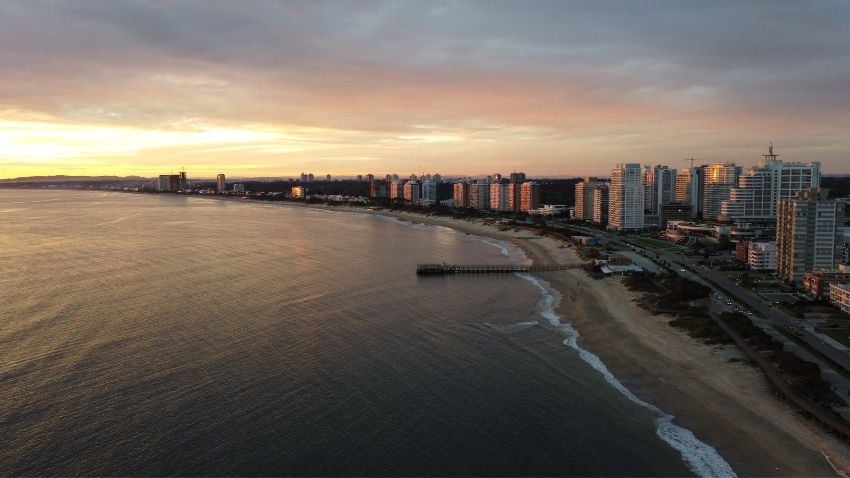
The temporary residency is an incredible option for those who want to experience the waters of Uruguay, with renewal between 180 days and two years
This visa is intended for any foreigner from a country of the Mercosur bloc and associate countries (i.e. Suriname, Guyana, Venezuela, Colombia, Ecuador, Perú, Paraguay, Bolivia, Chile, Brazil, and Argentina).
Here are the requirements to get it:
Valid and well-preserved identification document;
One passport-size photograph;
Clean criminal record: Certificate of judicial, criminal, or police records at the national level from the country or countries where the applicant has resided in the last five years before entering Uruguay. For individuals over 18 years old;
Valid Vaccination Certificate (Covid-19 is not required): According to Decree 136/2018, you must provide a certificate issued by a vaccination center in Uruguay, confirming that the foreigner complies with the Uruguayan vaccination schedule and that it is currently valid.
This visa is the perfect option for those who want to test the waters in the country, granting a renewable stay between 180 days and two years, depending on the cause that qualifies them as temporary residents.
Here are the requirements to get it:
Identification Document: Original identification document with which you entered the country;
One passport-size photo (to be presented on the day of the hearing);
Health Card: Occupational health card issued by authorized public or private health service providers approved by the Ministry of Public Health;
Valid Vaccination Certificate (Covid-19 is not required): According to Decree 136/2018, you must provide a certificate issued by a vaccination center in Uruguay, confirming that the foreigner complies with the Uruguayan vaccination schedule;
Criminal Records: From the country of origin and the country where you resided in the last five years before entering Uruguay (legalized or apostilled by the respective country) and translated into Spanish if necessary. Requirement for individuals over 18 years old;
Proof of Engaging in the Activity that Qualifies for Temporary Residency: A letterhead document specifying the activity you are engaged in and the duration of the employment by the employer, including the monthly remuneration, if applicable, or the means of financial support. This letter should be accompanied by a notarized certificate providing all the company details, depending on its legal nature, or a Nominated Labor History issued by the BPS (the institution in charge of Social Security).
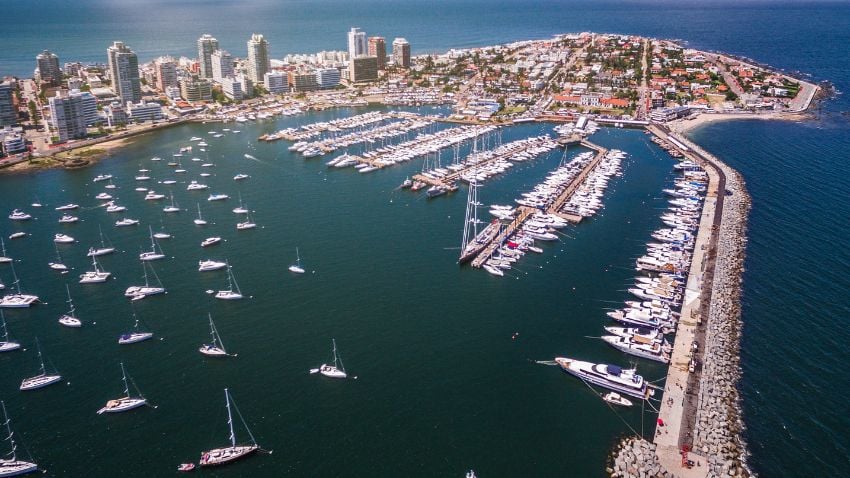
Uruguay has a permanent residence visa for those who are related to Uruguayan citizens
This is the visa for those who want to establish themselves in Uruguay and are relatives of an Uruguayan citizen (son, daughter, spouse, partner, or sibling of Uruguayan nationality).
Here are the requirements to get it:
One passport-size photo;
Identification document: valid and in good condition;
Valid Vaccination Certificate (Covid-19 is not required): According to Decree 136/2018, you must provide a certificate issued by a vaccination center in Uruguay, confirming that the foreigner complies with the Uruguayan vaccination schedule and that it is currently valid;
Valid and well-preserved identification document or passport of the Uruguayan family member;
Proof of relationship with the Uruguayan national: Either a valid birth certificate or a registered concubinage sentence demonstrating the connection with the Uruguayan national;
Criminal Record: Certificate of judicial, criminal, or police records at the national level from the country or countries where the applicant has resided in the last 5 years before entering Uruguay. For individuals over 18 years old.
Related content: The Basics Of How To Get A Second Passport Or A Second Residency
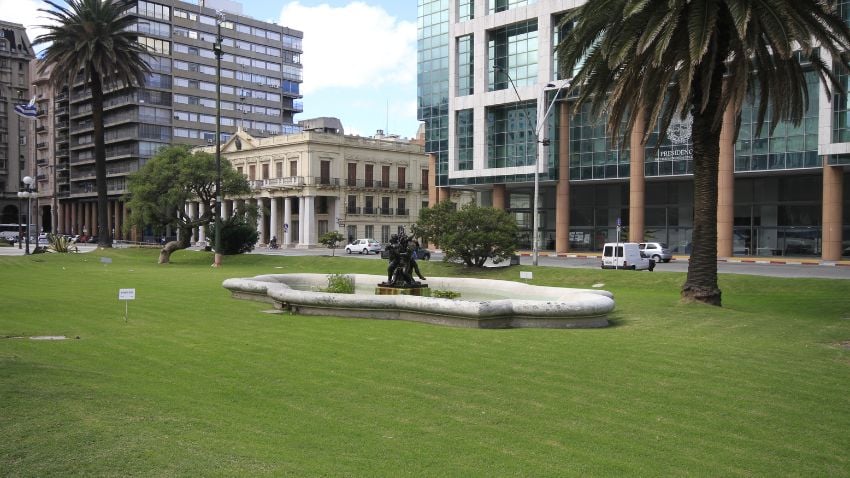
Uruguay has a visa for those who can support themselves, just prove that they earn at least US$ 1,500 per month and have a minimum stay of 183 days per year
This visa is intended for those who can sustain themselves, proving they earn a minimum of $1,500 USD per month. It requires a minimum stay of 183 days per year, usually takes between 6 and 12 months to process and grants visa-free travel to 153 destinations (including the Schengen zone).
Here are the requirements to get it:
One passport-size photo;
Identification document: valid and in good condition;
Valid Vaccination Certificate (Covid-19 is not required): According to Decree 136/2018, you must provide a certificate issued by a vaccination center in Uruguay, confirming that the foreigner complies with the Uruguayan vaccination schedule and that it is currently valid;
Criminal Records: applicants over 18 must provide certified criminal records, legalized or apostilled, and translated (except for Brazil) from their country of origin and countries they resided in for a minimum of six months within the last five years before entering Uruguay. Individuals born in the US can resort to Interpol in Montevideo to get fingerprints and request a certificate from the FBI. The valid criminal records certificate should have a national scope;
Health Card: Occupational health card issued by authorized public or private health service providers approved by the Ministry of Public Health;
Intent of Permanence;
Birth certificate: required only if the applicant is under 18;
Marriage certificate: only required to demonstrate the relationship if necessary;
Means of Livelihood: applicants must prove they can sustain themselves. This includes proof of a nominal monthly income to cover living expenses. For employees of a legal entity or domestic workers, a notarized certificate of income or labour story from the BPS is needed. Independent workers, entrepreneurs, shareholders and retirees must present notarized certificates or certified accountant documents outlining their income, business activities and compliance with relevant laws.
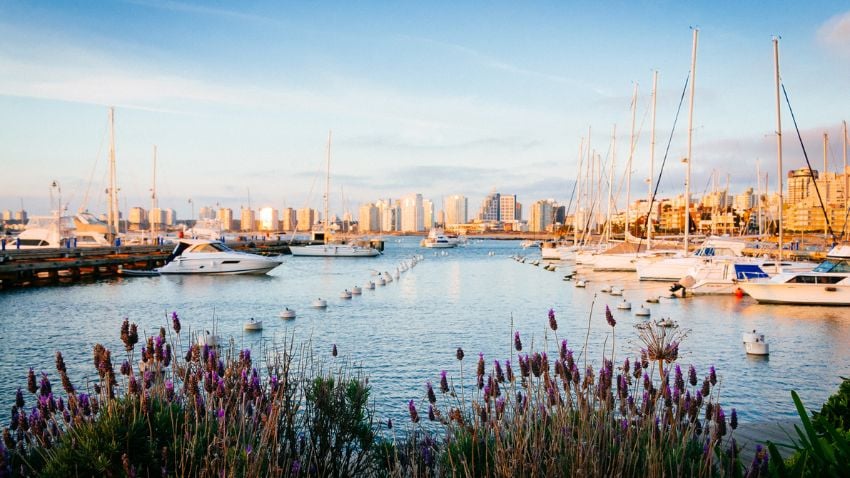
With pristine beaches and lush landscapes along the coast, Uruguay is a country for nature lovers
After doing the proper due diligence and getting the best visa for you, it’s time to explore what Uruguay offers in terms of lifestyle. First, you’ll have the privilege of living in the safest and least corrupt country in South America. Also, the country’s evident European heritage helps multiple expats from Western countries make themselves more at home, as the vibe of many cities is fairly familiar.
In Uruguay, you can indulge in culinary delicacies, ranging from mouthwatering meats and empanadas that showcase the country’s love for grilling. Also, you’ll encounter pasta, focaccias and ravioli that honour the country’s Italian heritage.
Uruguay is a country for nature lovers, boasting pristine beaches along the Atlantic coast to charming countryside. You can seek relaxation on the sandy shores, adventure in nature reserves and stroll through historic streets.
The country’s cultural richness is palpable, especially in Montevideo with its various theatres, art galleries and museums, and Punta del Este, home of various festivals. With everything Uruguay has in store, it’s no wonder that many expats are looking forward to securing their new lives abroad in this tiny, tax-friendly country.
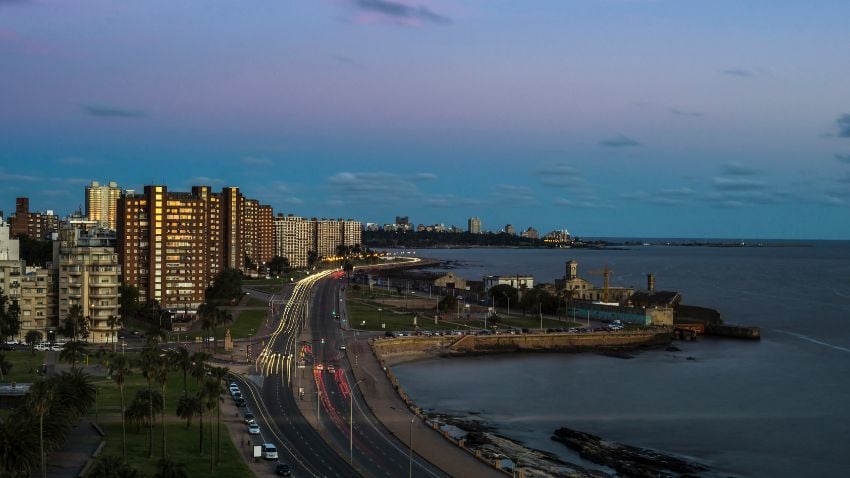
Uruguay ends up standing out among expats looking for a rewarding new life with security and a European vibe
Uruguay proved to be an appealing destination for expats seeking a fresh start and an exceptional lifestyle. The various visas available for various kinds of profiles are a major sign of the country’s commitment to prosperity, attracting capital, foreign investment and talent.
The economic requirements for the retirement and independent means visas, alongside the due diligence, make them highly attractive to expats seeking a lower cost of living and a favourable tax regime that doesn’t tax foreign source income.
When it comes to lifestyle, Uruguay has it all too. You can find vibrant cities, laid-back towns and breathtaking coastal cities. No matter what you’re looking for, Uruguay offers a multitude of options. With its safety, European vibe, and numerous advantages, Uruguay stands tall as an exceptional choice for expats looking to embrace a new and fulfilling life.
If you want the best intel from the expat world, including profitable offshore opportunities, little-known tax-saving strategies, and hard-won insights on immigration, passports, and Plan-B residencies, all delivered to your inbox every single week, then join our daily correspondence, EMS Pulse®. Currently enjoyed by over 84,000 expats and expat-hopefuls worldwide. Fill in the form below to join our newsletter free:

Written by Mikkel Thorup
Mikkel Thorup is the world’s most sought-after expat consultant. He focuses on helping high-net-worth private clients to legally mitigate tax liabilities, obtain a second residency and citizenship, and assemble a portfolio of foreign investments including international real estate, timber plantations, agricultural land and other hard-money tangible assets. Mikkel is the Founder and CEO at Expat Money®, a private consulting firm started in 2017. He hosts the popular weekly podcast, the Expat Money Show, and wrote the definitive #1-Best Selling book Expat Secrets - How To Pay Zero Taxes, Live Overseas And Make Giant Piles Of Money, and his second book: Expats Guide On Moving To Mexico.

Mexico remains one of Latin America’s most compelling destinations, especially for North Americans. More than a million expats call it home, and tens...

South Korea is far more than K-pop and K-dramas. It is a country known for outstanding food, from bustling street markets to high-end dining, as well...

Asia is one of the most fascinating regions in the world for travel, offering an extraordinary mix of cultures, histories, and landscapes. From...